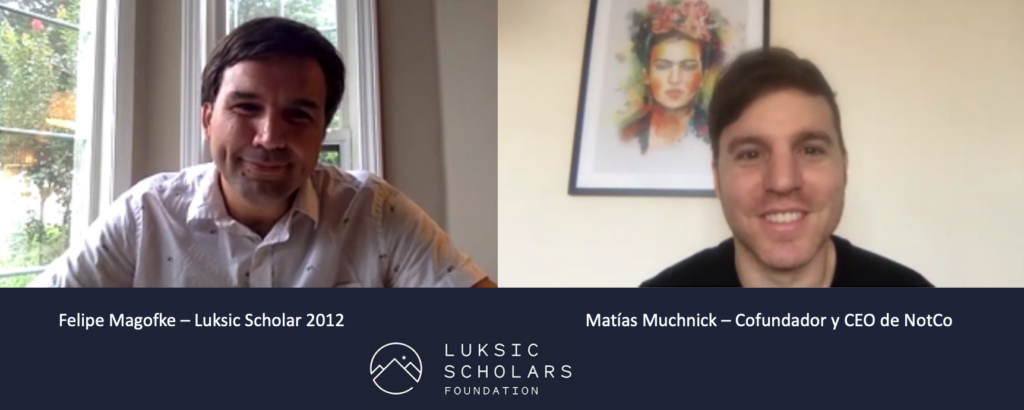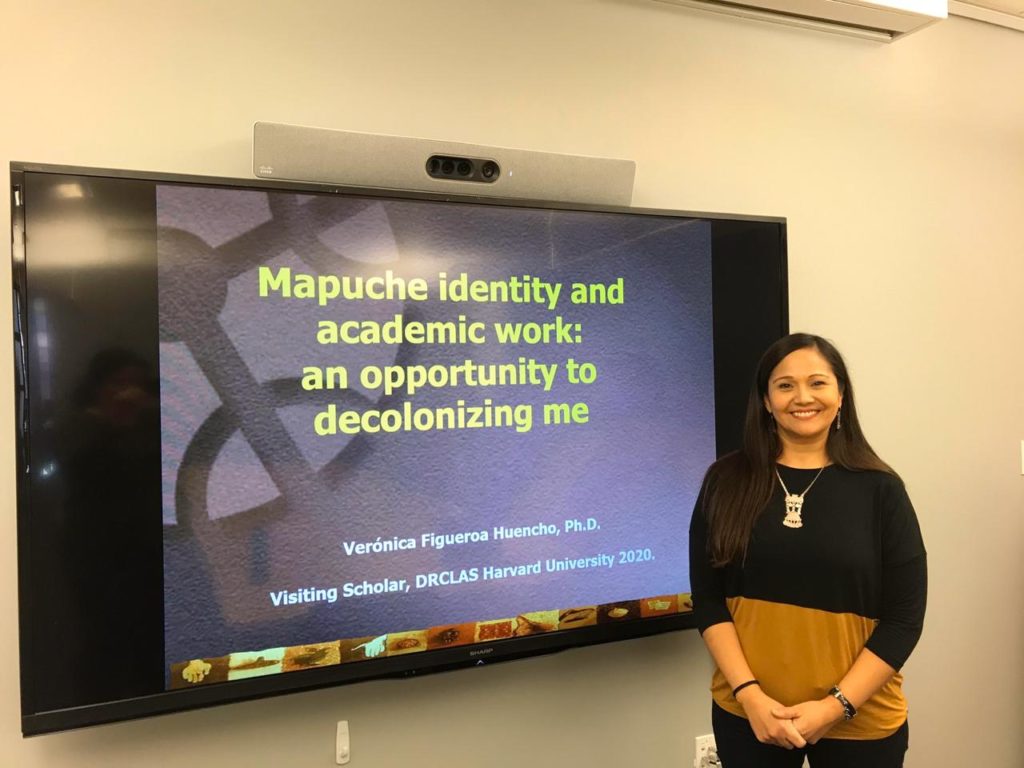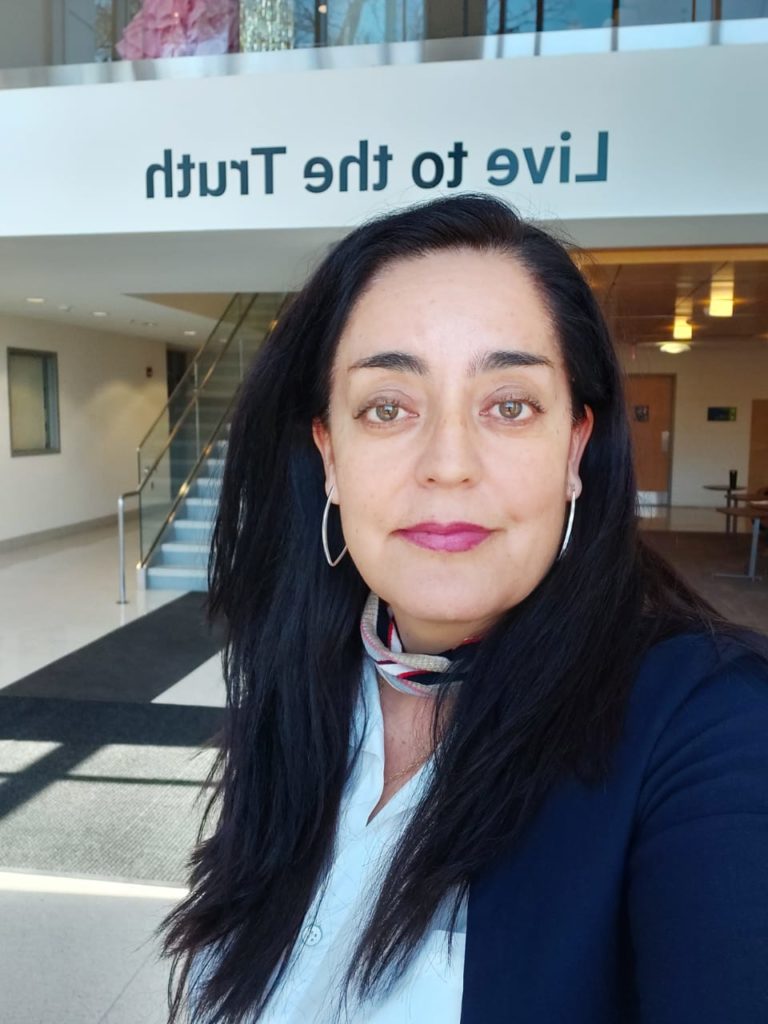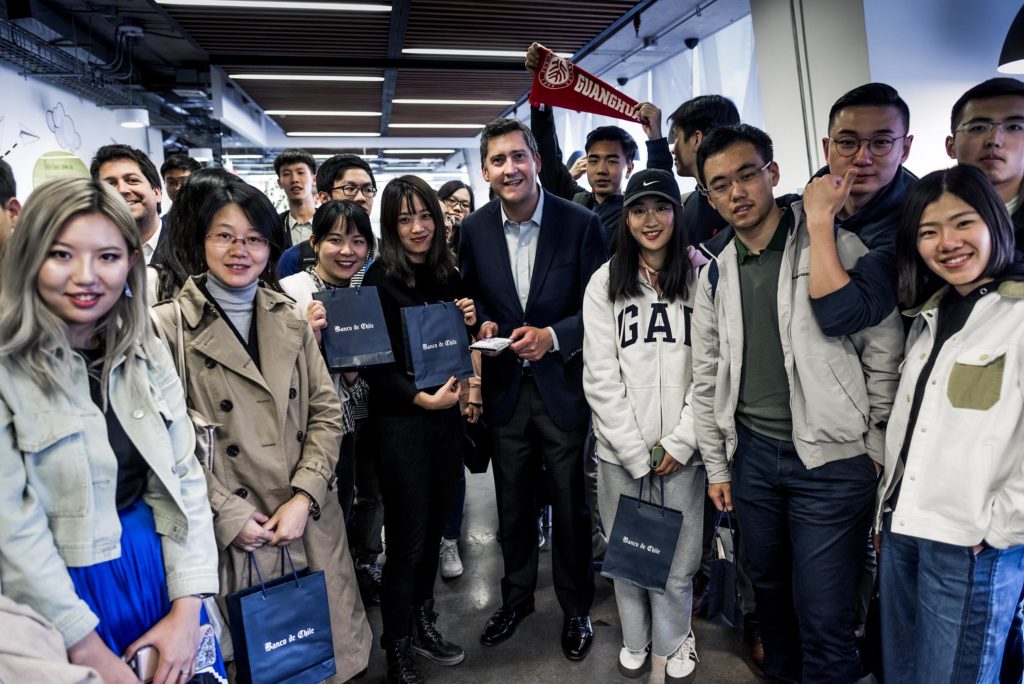“When the plane took off, I shed some tears,” recalls Andreas Guillén Meza, a young graduate of the Instituto Nacional in 2019, who moved to the city of Poitiers, France, on September 10th, to begin his studies in Social Sciences at the esteemed University of Sciences Po.
The emotion came as no surprise: this 19-year-old, from the Colbún commune in the Maule region, had never flown before or had even been outside of Chile. After being awarded the Sciences Po Quiñenco Scholarship for Chile, Guillén began a journey that will keep him living abroad for at least the next five years.
Andreas says that he has always known he has wanted to study political science. From his early years in elementary school, he had a love for history, geography, and cartography, which later developed into a hobby of making presentations on the composition of parliament, the political forces within ministries, and public policy debates.
“While I was at the Instituto Nacional, I was part of many debate groups which helped me to broaden my view and meet and interact with people from very different political positions. This helped to enrich my view of the political spectrum, break down previously-held myths and even debate better”, remembers Guillén.
Another one of his hobbies is vexillology: a discipline consisting of the study of flags. Today, Guillén is part of the nascent Chilean National Vexillology Corporation, which he has been a member of since 2018. He has a collection of nearly 100 flags that he took to France to decorate his room with; truly materializing his passion for the international arena.
Alongside a clear path of interests, this young student also had another dream: to study in France. “At the National Institute I took French classes which allowed me to learn the [French] language. In addition, my teachers supported me in completing the DELF at various levels to continue strengthening my knowledge of the French language and culture. I knew that I wanted to study there at some point in my life”.
October 9th, 2019 is a date that Guillén remembers very clearly. That day, representatives from Sciences Po University and the Luksic Scholars Foundation came to the National Institute to present a program to the students that would allow for one, young Chilean to study at said university with a scholarship financed by Quiñenco.
“I had never heard of Sciences Po, but I immediately knew that this was the perfect program for me: a scholarship to study political science at one of the best universities in France,” Guillén recalls.
From that moment on, he focused on complying with the requirements to apply [for the scholarship] while preparing for the PSU. However, he knew he could also not leave his future in the hands of one, single alternative so he continued working on his admissions process to the University of Chile.
Alas, his efforts did not go in vain. He was the first Chilean to submit all of the necessary documentation to apply to the Sciences Po scholarship and after a promising interview with representatives of the university, Andreas felt for the first time that his dreams could come true.
“At the end of April I began studying at the University of Chile, which is a great college, so I was able to come to terms with the situation. If the scholarship worked out, fine; but if not, I would give it my all to have a good career here in Chile, ”says Guillén.
The same day he started classes [at the University of Chile], he received a message from Sciences Po University letting him know that he had been selected to study Social Sciences at the headquarters in the city of Poitiers, specializing in Latin American studies. Two or three weeks later, he would receive a second email from Sciences Po claiming that he was indeed the recipient of the Sciences Po Quiñenco Scholarship for Chile program.
“My mom tells me that while I was reading the email I didn’t show any signs of emotion. I just kept quiet. I remember we hugged and probably shed a few tears. 2019 was not an easy year for us in terms of family life and personal matters so this was great news to start a new year with,” recalls Andreas.
From that day on, everything turned into preparation for his new life. Today he lives far away from his family with other students in Poitiers, a city located in the heart of France that boasts a strong university tradition and has about 90,000 inhabitants. It’s here where he will study for the next two years.
Adapting to this new stage of life did not come without its difficulties. Shortly after Andreas arrived in France, the first outbreaks of coronavirus started to appear in the Old Continent. As a result, Andreas now finds himself in a school routine that combines in-person classes with some remote classes, while at the same time, trying to personally settle in a new place that will be his home for the next 24 months.
After this period of two years is up, students then have to choose a country, other than France or Chile, to complete their third year of undergraduate studies, before going to Paris for two more years to complete their postgraduate studies.
“It is still unclear to me which specialization courses I will take, or which country I will go to for my third year, but I still have time to analyze and evaluate all the factors that will influence my decision,” says Andreas, while also commenting that the surroundings of Poitiers remind him of his native Colbún. “Their fields and rivers are very similar. It gives a bit of nostalgia”, he concludes.





